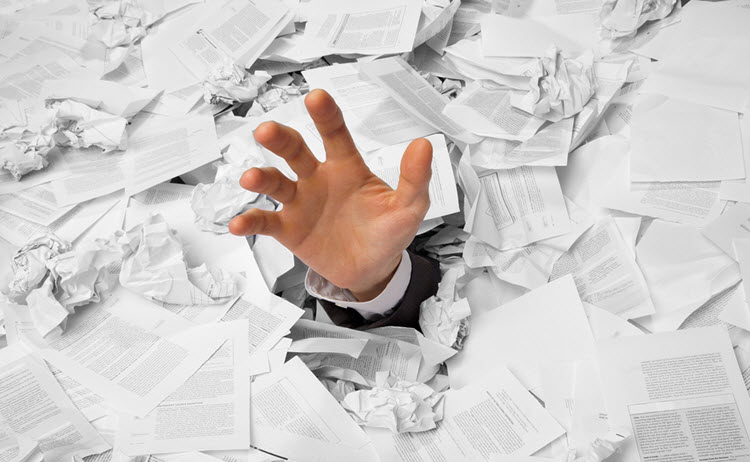What should I do with mom and dad’s financial statements, bills, important papers?
In my work helping people with bill paying and organization, I continue to be surprised by how much paper people keep. Most needlessly hang on too many records and too much paper, including utility bills, credit card statements and receipts for years-old purchases.
Before setting up files for such items, ask yourself what you might need to keep it for. If a receipt is needed for current taxes, keep it in a file marked “2016 Taxes.” If you pay your recurring bills electronically or online, your payments are posted and tracked in the online record of your account. For paper bill payers, your payment confirmation will appear on the next bill you receive. In either case, there is no reason to keep the paper copies of these bills.
You can always ask yourself: if I throw this out and need it later, can I get a copy somewhere? The answer, almost always, is yes. Utility and credit card companies can easily provide old bills and statements. When you receive a new investment statement, you can throw out the previous one. You can always request another copy, if needed. And remember, you will receive a year-end statement that will detail monthly activity for that year.
Here are some useful guidelines for personal information you will want to hold on to for longer periods:
Keep for At Least 7 Years *
- State and Federal income tax returns
- Any receipts or cancelled checks used for tax deductions
- W2 and 1099 forms
- Medical bills and statements
- Mileage records
- Real estate tax forms and records
* Note that a tax audit can take place up to six years after a filing.
Keep Forever
- Birth certificates
- Marriage licenses
- Divorce decrees
- Diplomas and transcripts
- Property records
- Contracts
Keep for the Life of the Asset (after which, keeping is optional)
- Car titles
- Mortgages
- Pension and retirement records
- Insurance and investment contracts
- Property agreements
- Wills
- Passports
- Major home improvement records
- Receipts for major purchases
The bottom line is quite simple. Some records clearly need to be retained for a period (for example, tax-related papers should be kept for seven years) or, in some cases, even forever (birth certificates, for example). However, for everyday records including bills and general receipts, if you can’t think of a reason why you need to keep piece of paper, throw it out! Of course, always remember to dispose of documents containing sensitive personal information (such as account numbers, financial information or social security numbers) in a secure manner to prevent anyone with unscrupulous intentions from accessing your personal data. And don’t forget…a scanner is a great investment and makes digital storage easy!
Note from Deb: If you think you will be applying for Medicaid, it might make sense to save your bank statements or contact your bank to ensure they can accommodate the five year look back. My bank recently got acquired and I can no longer get historical statements.
Disclaimer: The material in this blog is for educational purposes only. It is not intended to replace, nor does it replace, consulting with a physician, lawyer, accountant, financial planner or other qualified professional.

